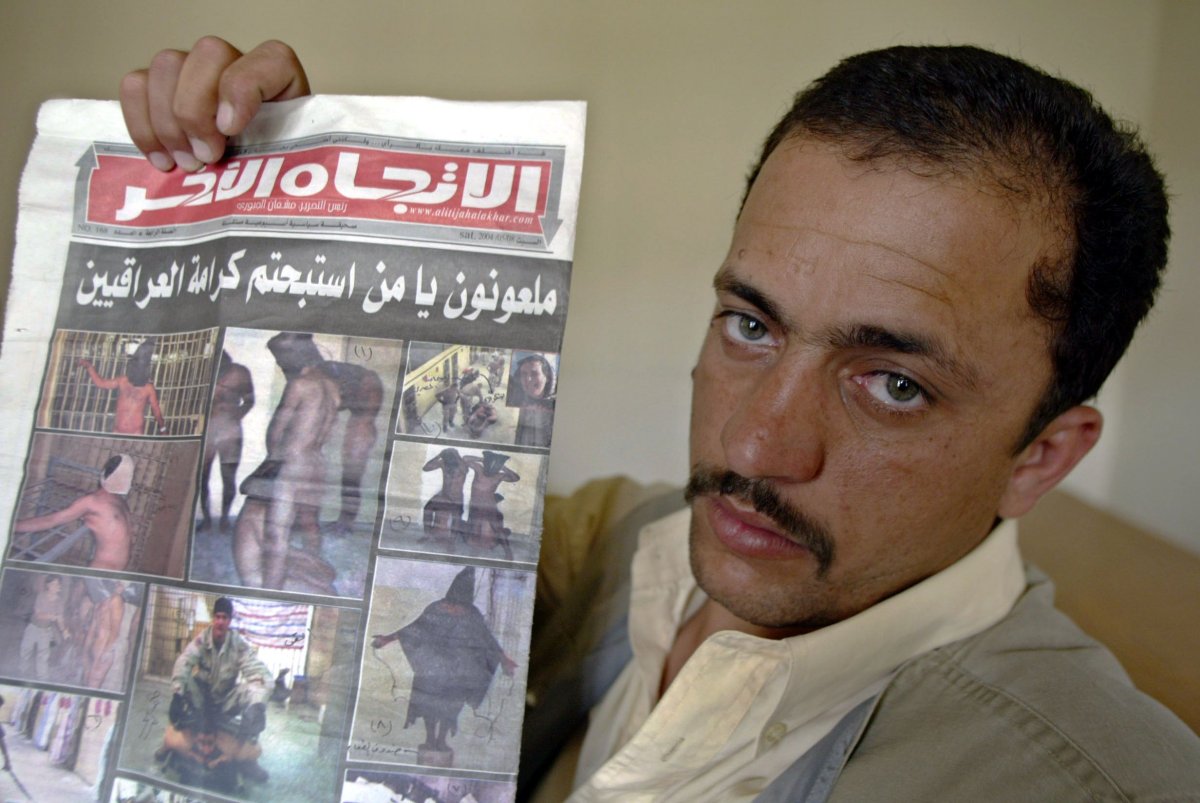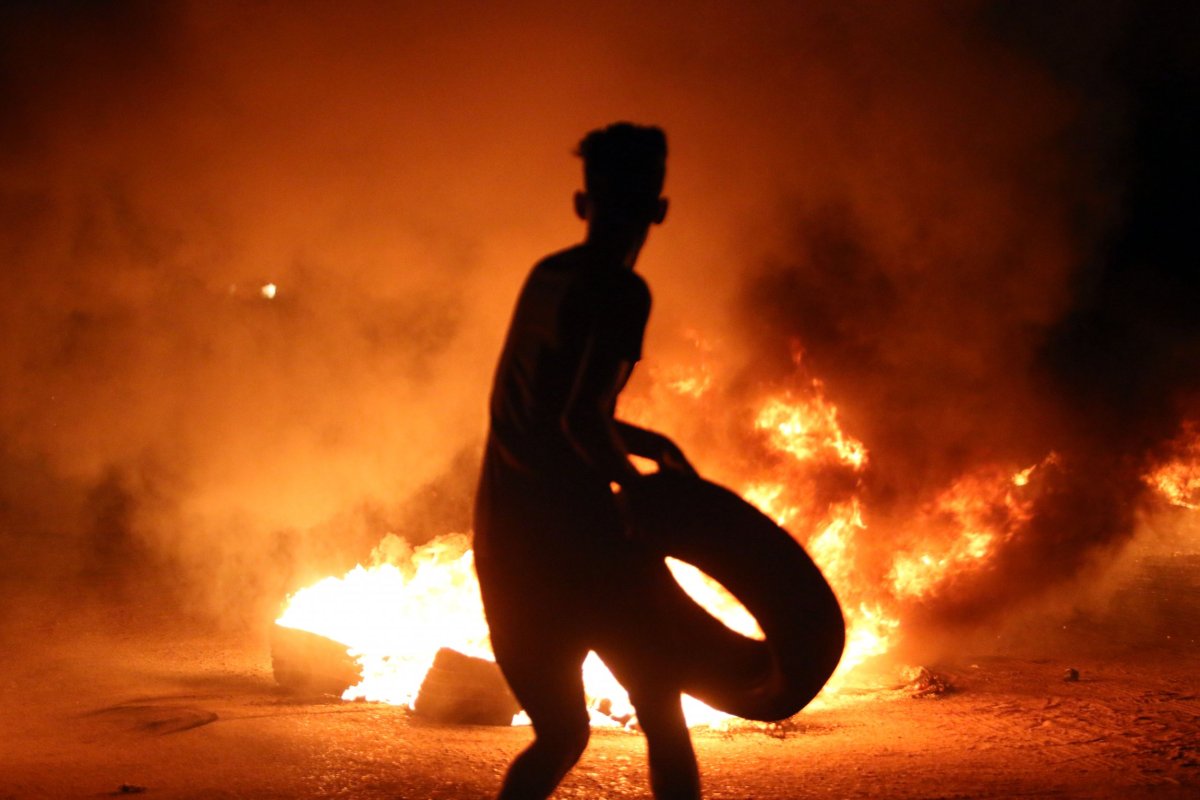A Dubai-based hip-hop artist of Iraqi ancestry has channeled Childish Gambino's famous "This Is America" hit to criticize the U.S. war in Iraq, and the ongoing death and destruction that has ravaged the country ever since.
Rapper I-NZ, who was born in Scotland to Iraqi parents and grew up in New Zealand, released the song and accompanying video "This Is Iraq" on the Fourth of July, more than 15 years after the U.S. military invaded Iraq and overthrew Iraqi President Saddam Hussein on weapons of mass destruction charges that later proved false. The song's lyrics and imagery detail the widely reported U.S. military abuses that followed, swapping Childish Gambino's takedown of police brutality, race relations and mass shootings for a politically charged assault on a war that has yet to end.
The artist, whose real name is Majid, said he was inspired by the success of the original music video, which has been viewed over 342 million times.
"I'm a big fan of the original track and the manner in which it was executed," I-NZ told Newsweek. "Since political tracks rarely ever go as viral as this one did, I felt like it was the perfect platform to remind everyone what Iraq had been through and what it still is currently going through."
The clip gets off to a grim start with breakdancing U.S. soldiers forcing I-NZ to shoot dead an older man who wears traditional Iraqi clothing as he peacefully sits with his oud. The rapper is dragged off in an orange jumpsuit often seen worn by U.S. prisoners of war. I-NZ then breaks into his own song and dance over the backdrop of fleeing Iraqis being shot and apprehended.
"This is Iraq, look at us blowin' up, nobody showin' up, nobody ownin' up," I-NZ sings as disembodied voices call out in Arabic with insults and interrogations. He then switches to Arabic himself, singing: "This is Iraq, your beginning is your end, your passport will end you, be careful not to mess up."
The following scenes are reminiscent of the infamous photos leaked in 2004 from the Abu Ghraib detention facility where Iraqi prisoners were tortured and sexually abused. In the video, U.S. soldiers are shown bumping fists with masked militants who go on to detain and potentially execute Iraqis on their behalf, and a female soldier in the background snaps selfies with a hooded, electrode-wired inmate being forced to pose.
The dark satire includes depictions of former President George W. Bush, whose administration oversaw the start of the 2003 war that has since been inherited by two successive administrations as the U.S. faced an emboldened Sunni Muslim insurgency spearheaded by Al-Qaeda. Taking advantage of a U.S.-backed rebellion in neighboring Syria, the militant group then known as the Islamic State of Iraq spread there and rebranded itself as the Islamic State of Iraq and Syria (ISIS), later known as simply the Islamic State.
I-NZ leads the final verse, which is filled with accusations of rape and media blackouts, as he insinuates that the U.S. launched the war to exploit Iraq's oil reserves, reciting "Get your crystal, Sand man." He sings, "Barrels on barrels on barrels, food for barrels and barrels, Halliburton the demolished, delivered a mission accomplished," mimicking Bush's infamous premature declaration as a voice calls out the former president's name and the lights cut out.

In the last shot, the camera pans to a man in an orange jumpsuit attempting to mop up a giant pool of blood. The older man from the opening shot returns to recite a poem to I-NZ, who sits silently as the first lines of famed Iraqi poet Badr Shakir al-Sayyab's "The River and Death" ring out. The poem is an ode to the Buwaib river that runs through the village of Jaykur in the Abu Al-Khaseeb district of Iraq's southern city of Basra, where Sayyab was from.
"Buwaib, oh Buwaib, bells of a lighthouse lost at the bottom of the sea, water is in the pots and the sunset in the trees, the pots ooze bells of rain, their crystal melts away in wailing, Buwaib, oh Buwaib, sympathy for you, Buwaib, darkens in my blood, sorrowful like rain, oh my river, Buwaib, oh Buwaib," the poem reads.
Related: U.S. still not sure if Iraq War was right decision 15 years later, poll shows
I-NZ said that while he himself has never been to Iraq, he still has a lot of family in the country and "would love to go back one day and visit them there." He recalled hearing stories from his parents "about how beautiful Iraq was when they lived there." Still, he said he doesn't believe that this will happen "any time soon as the situation is still unstable."
ISIS was defeated by a U.S.-led coalition, the Iraqi military, Kurdish fighters and a mostly Shiite Muslim, Iran-backed alliance known as the Popular Mobilization Forces, but the fragile bonds that united those battling the jihadis have become severely strained. May's Iraqi elections ushered in a surprise victory for a political bloc led by Shiite Muslim cleric Muqtada al-Sadr, a vocal opponent of Washington's military presence who once led his own insurgency against U.S. troops before focusing on the battle against ISIS.
The vote, however, was fraught with accusations of fraud, and many ballots were canceled by authorities. In Sayyab's hometown of Basra, massive protests have erupted against unemployment and a high cost of living, raising fears of further instability in a country in which many children have never known peace. As Iraq attempts to form a new government, some Iraqis have begun to question how long the U.S. plans to stay.

"The initial U.S.-led invasion of Iraq was illegal and should have never happened. For the most part, I don't believe that any country should act as an occupying force on foreign lands. I don't think I would like to say much more regarding this subject," I-NZ said when asked about his views on the ongoing U.S. military presence in Iraq.
"My opinion regarding the U.S. as a government during certain periods of time is very different to my opinion of it as a country and a people," he added. "My encounters with Americans has always been great. I'm a huge fan of American pop culture, especially considering my admiration and love for hip-hop as an art form."
The artist concluded, "It is important to note that my message has always been, and will always be, one of peace and hope for a better future globally."
Uncommon Knowledge
Newsweek is committed to challenging conventional wisdom and finding connections in the search for common ground.
Newsweek is committed to challenging conventional wisdom and finding connections in the search for common ground.
About the writer
Based in his hometown of Staten Island, New York City, Tom O'Connor is an award-winning Senior Writer of Foreign Policy ... Read more
To read how Newsweek uses AI as a newsroom tool, Click here.








